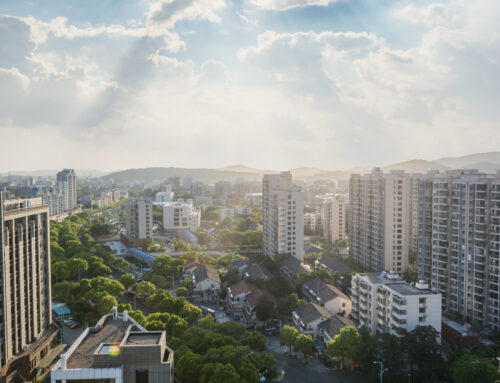- Rules to follow if you are suspecting a Coronavirus infection
“Those who do not have the symptoms but were exposed to an infected person should go in for quarantine. This is different from self-isolation. The latter is for those who are already sick. You isolate yourself so that you do not pass on the infection to anyone else. It is recommended for a period of 14 days when a sick person should refrain from going outside the house or using public transport. If you need medicines, get them delivered to your home and don’t run unnecessary errands”, says Dr Gaurav Singh, Senior Medical Officer, Central Hospital, Central Coalfields Ltd and Ex-Resident, AIIMS Bhubaneshwar. The self-isolation period can stretch depending on how long the person is showing the symptoms. - Rules to be followed by family members of a person infected by Coronavirus
“Minimum interaction is the key but it is not totally possible especially if you are living as a family,” says Dr Ratneshwar Prasad Singh, Communicable Diseases Officer at Sadar Hospital, Chhapra. He has the following advice for such families:
– Only one family member should help the infected person if the latter needs help.
– Do not handle the used-clothes of such a patient directly with your hands. Do not wash these in the washing machine along with clothes of other family members.
– Use a sanitiser before and after meeting the infected person. Change your clothes if they have touched you by mistake.
– In case a family member is tested positive for COVID-19, it is important that all other family members also quarantine themselves for a period of 14 days even though there may not be any symptoms. If there are symptoms, immediately get yourself tested too.
– All items and surfaces touched by the infected person should be disinfected. This includes table, chairs, shelves, toilets, clothes, utensils, etc.
– Separate personal care items like soaps, shampoo, towels. Do not use the same bathrooms, if possible.
– Self-declare the condition to your housing society or neighbours so that you do not have any visitors during such a period.
Additionally, if possible an isolation room in your house should also be equipped with gloves, hair cover, masks, gowns, hand-rubs, liquid soap, single-use towels, disinfectants and surface cleansers, large disposable bags with instructions on it to be handled with precaution. In case of an emergency, call on the coronavirus helpline number in your state for the way forward. - Rules for other residents in the housing society to help prevent spread of Coronavirus
“First of all, there is no need to panic. If you are maintaining a social distance, there are least chances of an infection,” says Dr Gaurav. For housing society residents who are in the know of an infected person or a suspected case near them, the following steps should be taken:
– Do not visit or come in contact with anyone who has a recent history of having travelled back from a corona-affected region.
– If you have, by chance, come into contact and show certain symptoms, quarantine yourself till you feel alright and the lab results are negative.
– Avoid assemblies and congregation to maintain a safe distance from other people.
– Depending upon your state authority, if COVID-19 cases are being reported from a particular colony, town, settlement, the district administration may even ask to seal the area, bar entry and exits, ban vehicular movement in the area, initiate passive and active surveillance, designate certain buildings for isolation. If you feel that this must be done, do not hesitate to inform the authorities. - Expectations from housing society residents to help prevent spread of Coronavirus
Dr Nileena Koshy, Additional Professor of Community Medicine at Government Medical College, Manjeri, Kerala, says “A stand-still is not possible but should be adhered to as much as possible.” While housing society residents continue to inhabit the neighbourhood, there are some tips you should follow to ensure that you are not traumatising the family in any way.
– Do not ostracise an affected family. It is harassment and causes trauma to everyone in the family.
– You can always help by giving provisions or any medical supply, to the family. Just leave it at their doorstep. Don’t enter the premises.
– Quarantine is just physical isolation. Do keep in touch with the family by means of other mediums such as WhatsApp or phone calls.
– Respect their need for privacy.
“In cultures where social-distancing is common, such as in Singapore, the coronavirus outbreak can be checked. It is not so easy in India where people like to meet and greet closely. Therefore, quarantine and self-isolation may be difficult but should not be ignored,” emphasises Koshy. - Tips to use common utilities to help prevent spread of Coronavirus
– Playgrounds with swings and slides should be closed temporarily so that children who are at home these days are not tempted to use these.
– Indoor sports areas, gyms, common yoga or meditation rooms should not be frequented now.
– Avoid going to clubhouses even if it is within your society.
– Do not use common taps, public washrooms and toilets as much as possible.
– If your apartment/building is provided with lift, restrict the use. If that is not possible, ensure that you are using a handrub or a sanitiser immediately after.
– Ensure that reception areas or lounges within such societies should be used only if necessary. Ensure that the housekeeping staff are in proper gear to clean such areas.
– Medicial and other waste from an infected person should not be dumped in open dumping grounds either. Alert sanitation workers and secure the waste in multiple bags so that the workers do not come in contact with these. Unfortunately, while some societies insist on segregating bio-degradable, non-degradable and medical waste, some others do not. This prevents thorough treating of infectious waste.
– Be careful while using or handling milk bags, elevator buttons, door knobs, door bells, newspapers, car doors, counters at shops, couriers, shared cabs, public transport, shoes, garden seats, grocery items, currency notes, ATMs, etc. It has been estimated that coronavirus can live on certain surfaces up to three days and therefore, it is better not to take risks.
Source: Housing.com






